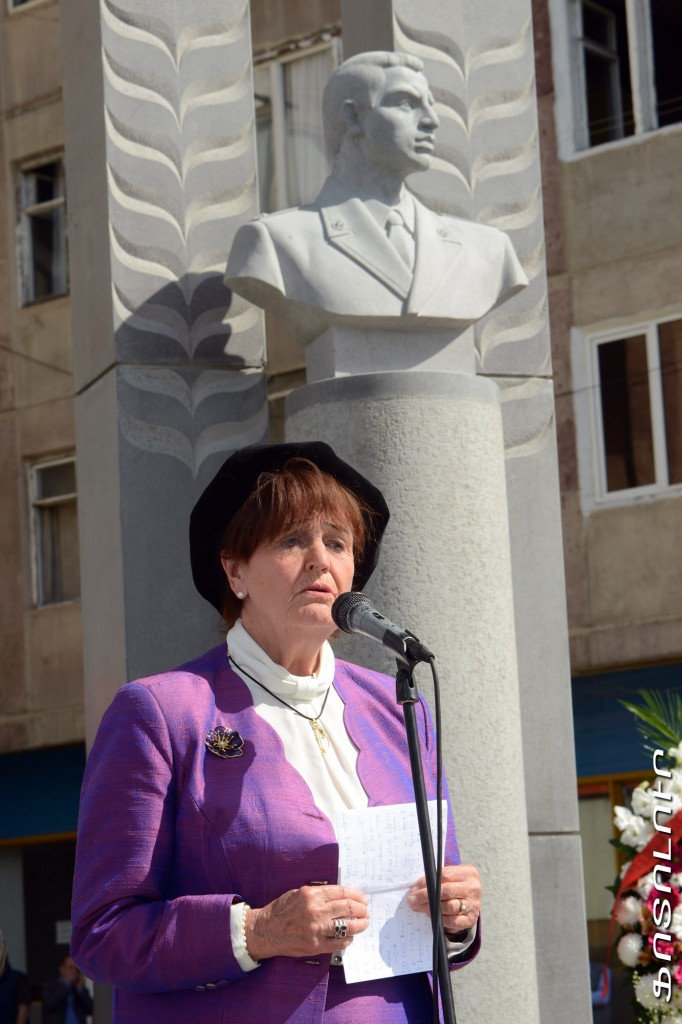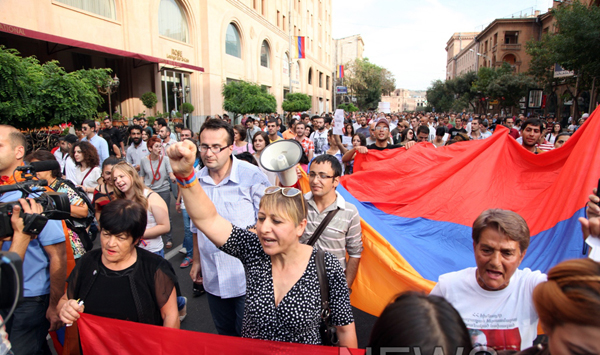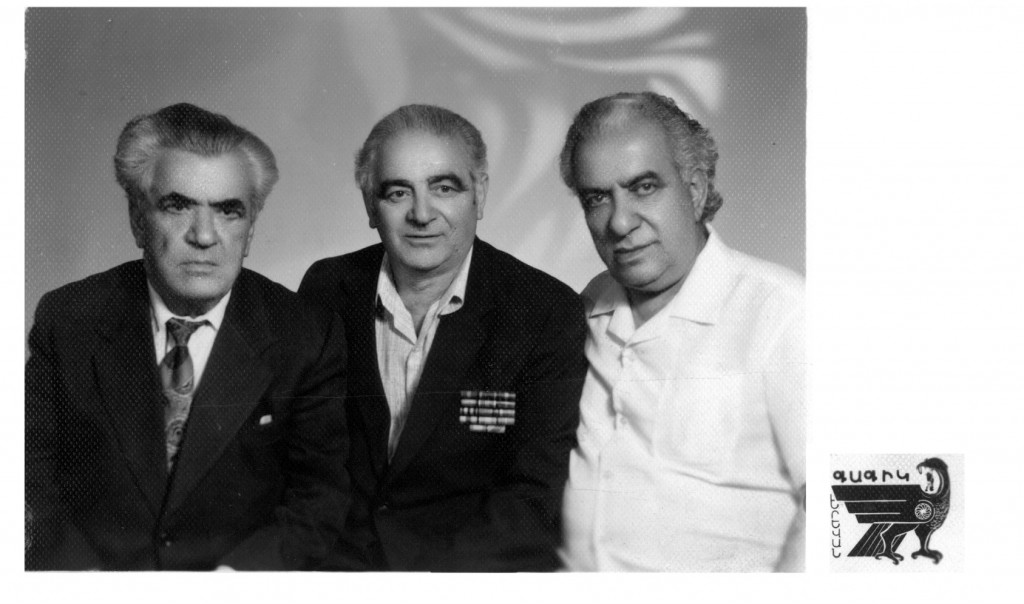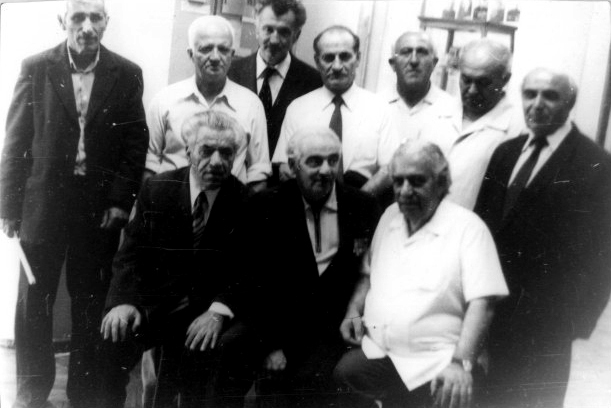NEW YORK — Armenian Foreign Minister Edward Nalbandian made a statement at the General Debate of the sixty-eighth session of the United Nations General Assembly in New York.
Following is the full text of the speech:
I would like to join the previous speakers in congratulating John Ashe on his election as the President of the 68th session of the United Nations General Assembly and to thank the outgoing President Mr. Vuk Jeremic.
During the past two decades the international community has been making great strides towards development of a cohesive approach to address the political, social and economic challenges the world community is facing nowadays.
We need to analyze our commitments with a view of the difficulties that arose while implementing the Millennium Development Goals. The world economic and financial crises had its share in detracting from the charted path. However, it revealed some of the underlying issues that were either overlooked or underestimated, which were important in the overall success. It became clear once again that no country can achieve in isolation the MDGs in the world of growing interdependence and interconnectedness.
The UN Conference on Sustainable Development -RIO+20, enriched our understanding of the ways of achieving the overall progress towards the political, social and economic development.
Armenia welcomes the inclusion of “Post-2015 Development Agenda: Setting the Stage†as the theme and main focus of our deliberations.
Despite the fact that most of us share the understanding that elimination of violence and terror is essential for building peaceful, sustainable and prosperous societies, peace seems to remain an elusive phenomenon in many parts of the world.
Armenia remains alarmed by the worsening of the humanitarian situation in Syria. The number of refugees Armenia continues to receive already exceeds ten thousand, but tens of thousands of Syrian-Armenians still remain in that country that has become their second home after the Genocide of 1915, and they are struggling for their survival in unbearable conditions together with their Syrian countrymen.
Armenia welcomes the resolution of the Security Council 2118 adopted unanimously yesterday based on the agreement reached in Geneva between Russian Foreign Minister Lavrov and US Secretary of State Kerry, which could lead to the elimination of chemical weapons and exclusion of their use in Syria and could pave the way to a political solution of the Syrian crisis, putting an end to the sufferings of the Syrian people.
To our strong belief, there is no alternative to the peaceful solution of the conflicts. Resolution of conflicts requires political will and determination.
Three months ago, on June 18th the Presidents of the three Co-Chair countries of the OSCE Minsk Group – Russia, United States and France, made a new statement on Nagorno-Karabakh in the framework of G8 Summit in Enniskillen.
In Armenia we welcomed this statement saying that, as the Co-Chairs, we continue to believe that the elements outlined in the statements of the heads of the Co-Chair countries over the last five years can be the basis for reaching a fair and lasting settlement of the conflict. We share the position of the Co-Chair countries, that those elements should be seen as an integrated whole and that any attempt to select some elements over others would make it impossible to achieve a solution. We absolutely agree that peoples should be prepared for peace, not war. Unfortunately until now the Azerbaijani leadership is doing just the opposite and is increasing warmongering and anti-Armenian hate-speech on a daily basis using even the highest podium of the United Nations.
We absolutely agree with the heads of the three Co-Chair countries, of the three permanent members of the Security Council, that the use of force will not resolve the conflict, and that only a negotiated settlement can lead to peace and stability. However, by the unprecedented accumulation of offensive weaponry in massive scale Azerbaijan seriously endangers regional and international security, despite its membership in the UN Security Council.
Unlike Azerbaijan, Armenia has on several occasions reiterated and in response to the Enniskillen appeal of the Presidents of USA, Russian Federation and France, once again re-affirmed its commitment to the principles of international law, particularly the non-use of force or the threat of force, equal rights and self-determination of peoples, and territorial integrity.
Azerbaijan keeps misinterpreting the 1993 Security Council resolutions, the core requirement of which was the immediate cessation of all hostilities and hostile acts and the establishment of a durable cease-fire. Azerbaijan not only failed to comply with this requirement, but further intensified its aggression and the military operations against Nagorno-Karabakh and Armenia using mercenaries closely linked to notorious terrorist organizations. It is not surprising that after the ceasefire agreement signed in 1994, the mediators, the three permanent members of the Security Council never made any reference to those resolutions.
Azerbaijan is pretending that the international community shares its approaches and it shares the approaches of the international community. In reality, Azerbaijan is continuously rejecting all proposals of the internationally mandated OSCE Minsk Group Co-Chair countries. Baku rejected all versions of the Basic Principles of the settlement of the Nagorno-Karabakh conflict proposed by the Co-Chairs of the Minsk Group, including those presented at the Kazan (June 2011), Sochi (March 2011), Astrakhan (October 2011) and Saint Petersburg (June 2010) summits.
Baku refused not only the Basic Principles, but also confidence-building measures proposed by the Co-Chairs on consolidation of ceasefire, withdrawal of the snipers from the line of contact and the establishment of a mechanism for investigation of the ceasefire violations.
Azerbaijan not only obstructs confidence-building measures, but also periodically organizes provocations on the line of contact with Nagorno-Karabakh and on the border with Armenia, which result in new casualties.
During the previous session of the General Assembly I spoke about the release and glorification of an axe-murderer Safarov by the Azerbaijani leadership, which was strongly condemned by the entire international community, by the United Nations’ and other international organizations’ human rights commissions. Even today, more than a year after it, Azerbaijani leadership continues to declare that what they did “is just very good†and dares to criticize the stance of the international community. This clearly demonstrates the deepening gap of perceptions between the Azerbaijani leadership and the international community about what is good and what is bad.
Most recently Azerbaijani authorities on national level have ostracized the eminent Azerbaijani writer Aylisli for publishing a novel, where he talks about the pogroms against Armenians in Baku, Sumgait and other parts of Azerbaijan. His books were publicly burnt and the writer had to leave the country facing threats to his life.
Just last week the President of Azerbaijan once again came up with new threats against Armenia and Nagorno-Karabakh and claimed Armenian territories, including almost three thousand years old capital city Yerevan.
Regardless of Azerbaijan’s destructive stance, Armenia will continue its efforts towards the settlement of the Nagorno-Karabakh conflict exclusively through peaceful means and on the basis of the purposes, principles and norms reflected in the UN Charter and the provisions of L’Aquila, Muskoka, Deauville, Los Cabos and Enniskillen statements of the three Co-Chair countries’ Presidents.
This March, the Human Rights Council adopted by consensus a resolution “On Prevention of Genocide,†initiated by Armenia and co-sponsored by over 60 countries. The recognition, condemnation and prevention of genocide remains a priority for Armenia and we will take necessary actions to prevent new occurrences of the crime of genocide, while keeping high on the agenda the issue of responsibility for the crime against humanity and its denial.
As a nation that has survived the first genocide of the twentieth century, Armenia unequivocally welcomes the clear position adopted by the UN member states in precluding any possibility of immunity or pardon for perpetrators of crimes against humanity.
Since May of this year Armenia has assumed the Chairmanship of the Council of Europe – a regional organization that remains a key partner of the United Nations in our shared global quest united behind the principles of fundamental freedoms, defense and promotion of human rights and continuous efforts for peace and security.
The cooperation between these two organizations is also well established in the fields of the fight against racism, xenophobia, hate-speech and intolerance. These issues are also among Armenia’s chairmanship priorities that were defined in response to the challenges that member states of both the United Nations and the Council of Europe are facing today.
Armenia has committed itself to the strengthening of the institutional capacities of the United Nations. We support the United Nations reform process and are ready to bring our feasible contribution to it. We believe that the reforms provide an opportunity to enhance the role of this organization in addressing the crucial issues facing the world.
Armenian FM Speaks at UN General Assembly Session




